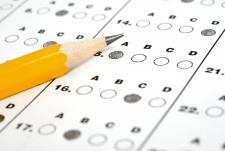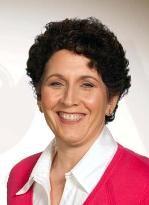Financial Aid Checklist: Part I
Posted on Thu, 11/21/2013 - 10:54
Paying for college is a concern for most families. But the single biggest mistake families make in the college application process is failing to apply for financial aid. Even if you think you won't qualify, apply. You may be pleasantly surprised. Today, we're pleased to bring you Part I of a checklist of tasks you should be tackling right now to pay for college, courtesy of College Advisor Alice Kleeman. Use this checklist to make sure you are eligible for ALL the aid you may qualify for.
Juniors: It's Time to Think about a Testing Plan
Posted on Thu, 11/21/2013 - 10:00
Most students will want to take either the SAT or ACT once by the end of junior year -- usually taking either test for the first time in the winter or spring. (The SAT is first offered in January; the ACT in February. Make sure to check deadlines for sign-up!) This timing allows you to capitalize on having just completed Algebra II, as well as further coursework in English. No timetable suits all students, but all students should begin thinking of creating a testing plan, taking into account planning for the SAT or ACT, Subject Tests, and AP exams (if enrolled).
Tips for Parents on the College Essay
Posted on Wed, 11/20/2013 - 11:35
Psychologist and counselor Jeanette Spires joins us again this month with advice for parents on the college essay. It can be helpful to parents -- as well as students -- to understand what the colleges are looking for and how important it is for the student to own this step in the process. Read on for more guidance about how to be involved "just right" and why weathering a "white knuckle" experience may be just fine.
"She won't even talk about it!"
"We have a great idea for him!"
The essay for selective colleges is often a source of frustration and conflict within a family. Understanding the function of the essay can be a calming solution to endless kitchen table "get off my back" discussions.
A tired reader hopes to know your student in a way that the glowing recommendations do not cover. How can I know this person better?
What would he be like to have on our campus? How does her mind work?
Years ago I took notes at a national college conference from a dean at one of the nation's most selective colleges:
"Don't try to anticipate our politics,,,don't patronize us...don't be terrified of offending us...don't read books of college essays; we've read them all. It does not have to be perfect. We are here to help you grow. No vague generalities, avoid the boring or overused topics such as the D Words: divorce, depression, drugs and dog death. Humor is always appreciated!"
Solving the Problem of the Student-Athlete Parent
Posted on Wed, 11/20/2013 - 11:09“I love to watch you play.” Wow! Great advice on parenting a student-athlete in "What Parents Should Say as Their Kids Perform", a post from Dr. Tim Elmore, author of Nurturing the Leader Within Your Child and founder and president of Growing Leaders, an Atlanta- based non-profit organization created to develop emerging leaders. As parents, we often found it to be enormously helpful to have "sound bites" that helped us to mix up that perfect parental cocktail of high expectations and support. Read the entire post here to learn more about how parents can be about less stress and more success.
What is the best advice for juniors on researching colleges?
Posted on Wed, 11/20/2013 - 10:30
In our latest feature, we're asking high school college counselors, independent counselors, deans of admission and other experts, such as financial aid officers and psychologists, to respond to our questions about all things college admission. Then we're bringing you their advice on the subject of the moment -- from essays and scholarships to interviews and extracurriculars -- including words of wisdom, mistakes to avoid, resources such as websites and books and advice on how to handle it all on a day-to-day basis.
So… "The Question of the Month" for November is:
What is your best advice for juniors on researching colleges?
Alice Kleeman
College Advisor
Menlo-Atherton High School
Atherton, California
My best advice for juniors beginning their college research is not to come to a screeching halt the minute they see the college's posted Cost of Attendance (COA), or “sticker price.” Students might be merrily clicking through a college website, intrigued by engaging course offerings, fun clubs and organizations, and tempting housing options. Suddenly, at the sight of the sticker price, juniors throw up their hands: "Guess I didn't really want to go to that college after all."
Advice for Writing the "Why us?" Essay
Posted on Tue, 11/19/2013 - 10:47
Kim Lifton, President of Wow Writing Workshop, joins us today to address the often misunderstood "Why us?" essay. The "Why us?" essay is a unique opportunity in the college application.
Seniors: A memorable essay? Might be family breakfasts, piano lessons, or raising pigs...
Posted on Tue, 11/19/2013 - 10:13
A couple of years ago, the New York Times published an article claiming students were cultivating summer experiences such as expensive internships or exotic travel experiences "with the goal of creating a standout personal statement." Quick, buy a ticket to Shanghai! NOT! Some form of this urban myth wanders through the hallways of high schools across the country during essay writing season.
This "strategy" couldn't be more wrong-headed. Or, as a former admission officer on Robin Mamlet's staff at Stanford put it -- more colorfully --in an email to us, "YUCK. That should be YUCK in all caps, bold, italics, the works. With many, many exclamation marks."
Thank you to Wolcott School
Posted on Thu, 11/14/2013 - 11:55
RESOURCES!
Posted on Thu, 11/14/2013 - 11:01
Have a question about a gap year? Scholarships? Guidebooks for your college search? Undocumented students? Learning differences? Don't forget to take advantage of our extensive listing of Resources! You'll find books and websites for every step and aspect of the college application process under Resources when you click on the Book tab in the header of the website. Check back regularly! We always updating our listings!
Juniors: Subjective Guidebooks and Websites for your College Search
Posted on Wed, 11/13/2013 - 09:01
One of the most important steps in the college application process is researching the colleges. Last week, we brought you our list of objective guidebooks and websites -- the comprehensive catalogs that provide at-a-glance overviews for colleges and universities with facts and figures on variables such as location, cost, test scores, academics, athletics and financial aid. These are great starting points for your research.
This week, we have the subjective guidebooks and websites. These subjective resources can also provide basic facts about colleges and universities, such as acceptance rates and enrollment. But they also "review" the schools -- offering fact and opinion about the physical campus, student body, academics and other aspects of campus life. Their anecdotal nature makes them very entertaining, but pay attention to how they gather their information and from whom.
All of these guidebooks are usually available in bookstores, libraries and the office of your high school college counselor. Websites are available to everyone free of charge.
SUBJECTIVE REFERENCE GUIDES
Books







